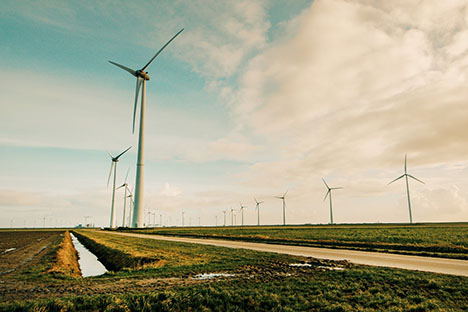
Photo by Tom Swinnen via Pexels.
As the world is grappling with a policy response to the unfolding economic crisis, ideas on green stimulus are gaining traction. This represents a significant long-term shift in the history of ideas on climate and economic policy.
With the rise of climate policies in the 1990s, market-based solutions were once the dominant mode of climate policy proposals. New research from environmental science, policy, and management associate professor Jonas Meckling analyzes the broad shift in economic principles and schools of thought, in response to climate challenges. Co-authored with Bentley Allan, a researcher at Johns Hopkins University, the study shows that major international organizations have broadened their climate policy advice beyond market-based solutions to include green innovation and industrial policy, including subsidies and regulation, and that climate policy has entered a post-paradigmatic period.
The study, published in Nature Climate Change on Monday, analyzes over 150 academic publications from prominent organizations that report on economic interventions in climate policies, including the World Bank and the United Nations Development Programme (UNDP). The research outlines how shifts in economic thought have guided new approaches to climate—in particular, how a shift from neoclassical economic principles to Green Keynesian and Schumpeterian principles has paralleled a greater emphasis on green growth.
The analysis can inform future climate policies and economic interventions by clarifying the role of regulatory intervention and government investment in climate policy. The authors suggest that the diversification of economic thought has prompted more robust climate policies. Meckling and co-author Allan write: “The emergence of a diversified global policy discourse is important because it helped change the frame of climate policy from a zero-sum to a win-win logic. In this view, climate action generates both private and collective benefits.”
Meckling’s research focuses on climate and energy policy; specifically, he studies the underlying political and economic forces that drive the low-carbon transition.
Read the full study in Nature Climate Change here.
